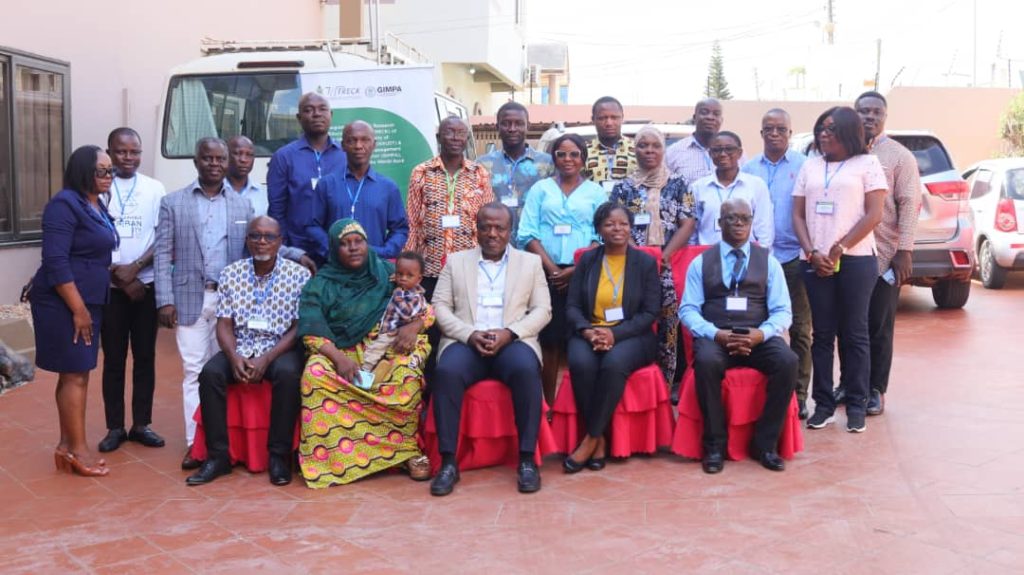By Kodjo Adams
Accra, May 27, GNA – A six-day training course on environmental and social risk management is underway in Accra.
The course, dubbed “Essentials of Environmental and Social Risk Management, (ESRM), aimed to increase the capacity of environmental experts to manage infrastructure projects in the country and within sub-Saharan Africa.
The training programme brought together 15 environmental officials from Ghana’s Metropolitan, Municipal, and District Assemblies (MMDAs) to build their capacities in managing environmental and social risk issues.
The programme is organised in collaboration with the Ghana Institute of Management and Public Administration (GIMPA), the Regional Transport Research and Education Centre of Kwame Nkrumah University of Science and Technology (KNUST), and funded by the World Bank Group.
Professor Helen Essandoh, Director, Regional Transport Research and Education Centre, KNUST, said the course, since its inception in November 2022, had built the capacities of 150 participants from Ghana, Sierra Leone, Liberia, Uganda, and Nigeria.
Professor Essandoh said the course, which was the fifth in the series, would help participants gain insights about prioritising environmental issues before implementing development projects.
She said it was important for authorities to identify environmental effects on development projects like roads, schools, and hospitals and institute appropriate measures to ensure the success of the projects.
That, she stated, would help reduce financial costs on such projects due to delays or failures because of the absence of environmental and social risk management.
The Professor emphasised the important role of participants in that field in achieving the Sustainable Development Goal of protecting, restoring, and promoting sustainable use of terrestrial ecosystems.
Mr Jonathan Zinzi Aryitey, Consultant to the World Bank project on ESRM, underscored the importance of MMDAs because they were the development neck of the country because all projects were executed by these assemblies.
He said the World Bank’s aim in financing development projects was to alleviate poverty and ensure that social issues were addressed.
“Ghana has too many laws, but it is important to focus on implementation to optimise the needed impact of the regulations,” he said.

A speech on behalf of Dr Augustina Akonnor, Deputy Rector of GIMPA, expressed the desire to partner with the institutions for the training and urged the participants to take advantage of networking to share experience and best practices.
She urged the participants to fully participate in the course and implement the knowledge acquired to improve service delivery.
The participants would be taken through topics like the regulatory and institutional framework for ESRM, environmental and social impact assessment, stakeholder engagement, land acquisition and involuntary resettlement, and labour and occupational health and safety in development projects.
GNA